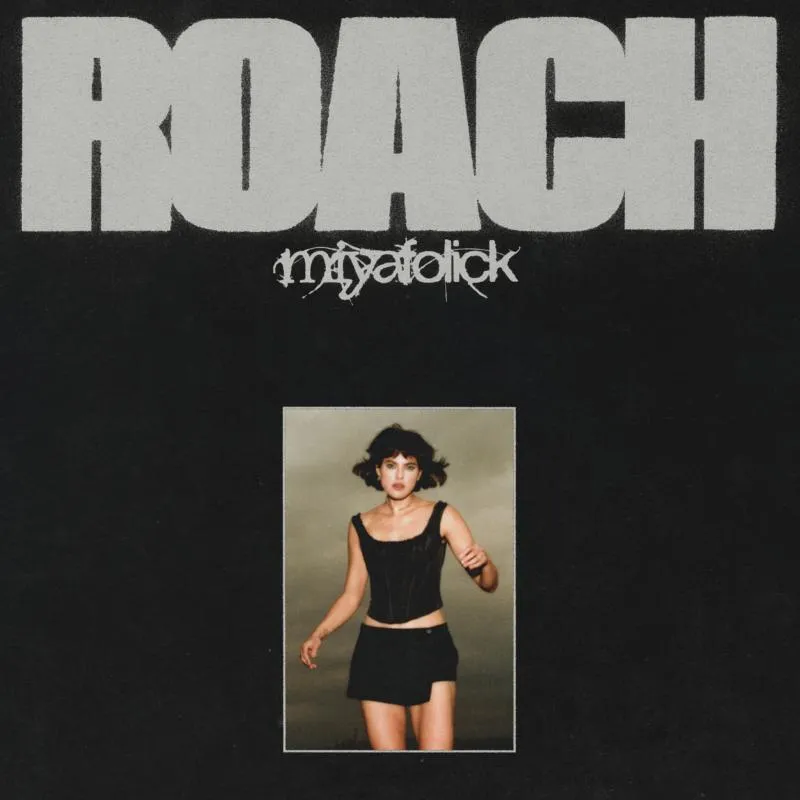
Interview Miya Folick: What We Do In The Shadows
Fleshing out the deeply personal story she began with EP ‘2007’, on ‘ROACH’ Miya Folick embraces the ugly beauty of life in all its facets.
When she was young, Miya Folick was obsessed with perfection. “I was a super happy kid who would have really sudden, intense tantrums when I felt I had done something wrong,” she recalls. “I could cycle in and out of happiness and despair very quickly, but as I got older, those cycles got longer.”
The 33-year-old is speaking from a hotel room in North Carolina - a stop-off on her current support tour alongside American sister duo Aly & AJ. She’s discussing her second LP ‘ROACH’, a frank, upfront view into the cyclical tumult of the past few years. It’s a pattern that has followed her throughout her life, and one she doesn’t expect to go away anytime soon.
“I read my diary from when I was seven or eight, and I'd gotten a B on a test,” she continues. “I wrote: ‘I wish that I could just get C’s and not care, because I know that perfection doesn't matter, but I can't stop craving it.’”
Her addiction to perfection and “desire for instant gratification” started with school grades, but started to spiral into deeper territory. Looking back, her 2018 debut ‘Premonitions’ lived up to its title. There, Miya hinted at the hedonistic, self-destructive tendencies that ‘ROACH’ magnifies, with gritty indie rock riffs and her powerful, yelping voice.
She wrote ‘ROACH’ straight after ‘Premonitions’, primarily between 2019 and 2020, then divided the songs and released some as 2022 teaser EP ‘2007’. Opening track and Mitski co-write ‘Bad Thing’ starts with Miya waking up and regretting the night before - as many mornings might start for a twenty-something. Through the record, Miya is determined to celebrate life despite its challenges. On ‘2007’ she sings, “I don’t wanna be afraid of ageing or gaining weight / I want to take up space / I want to get up real early and stay up real late.”
“I still struggle with body dysmorphia in periods,” she explains. “It's not like I came to a place where I'm free and happy and always love my body and always feel like myself inside of it. But what I'm talking about in that lyric is that even with this feeling of body dysmorphia and wanting to shed my skin, I'm still wanting to celebrate being alive. A joyful life doesn't mean a life free from suffering.”
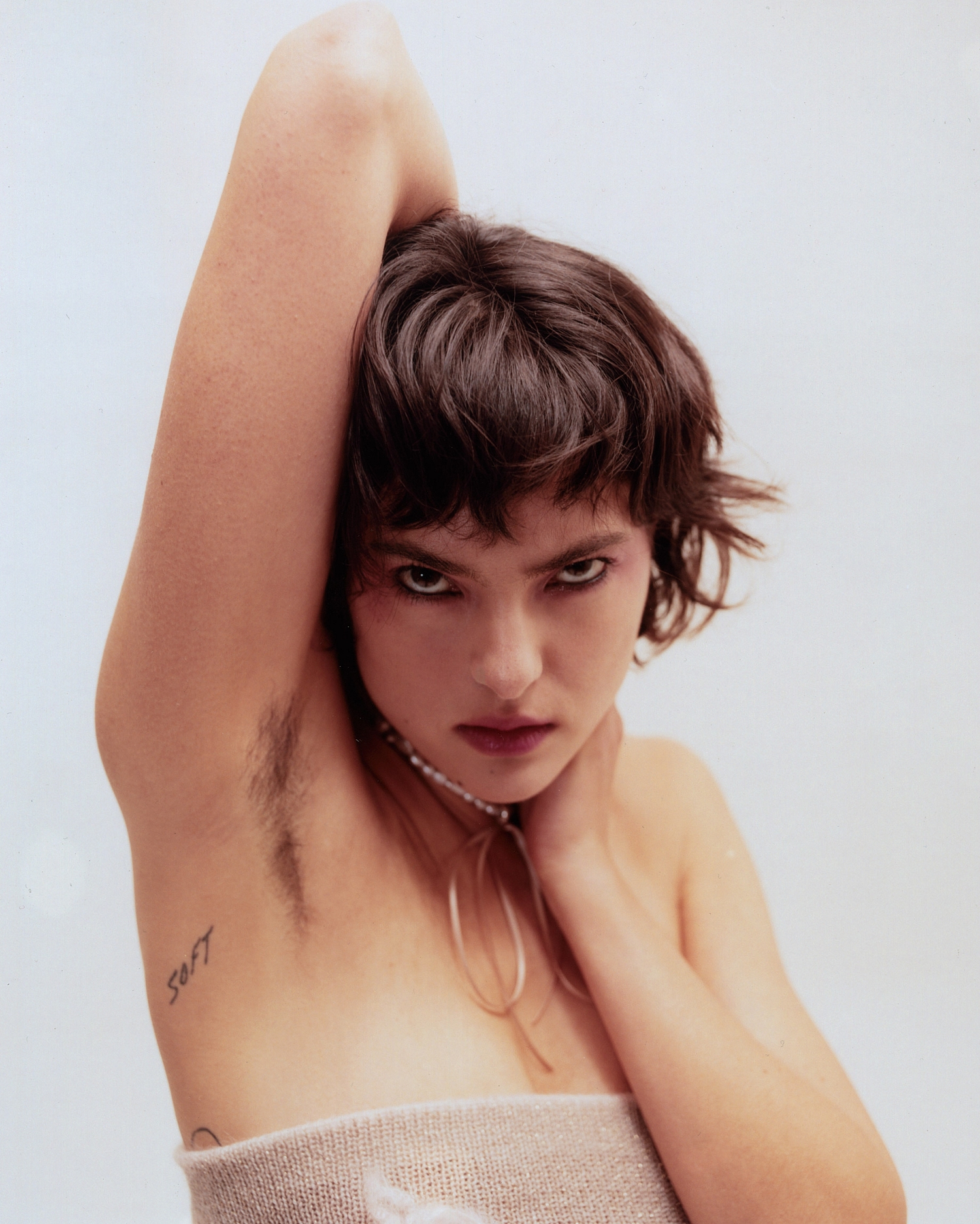
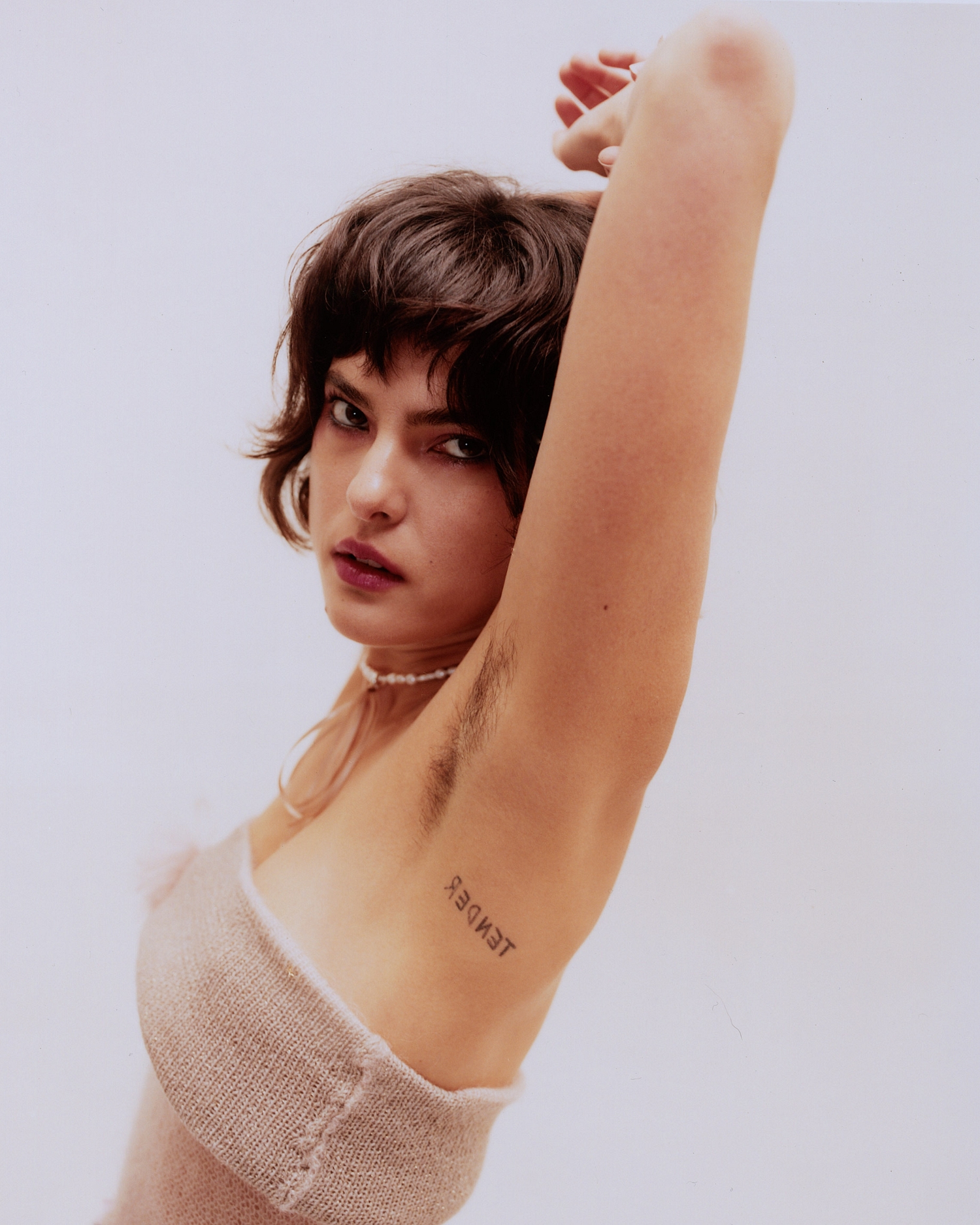
“A joyful life doesn’t mean a life free from suffering.”
‘ROACH’, however, exposes a darker side to the musician’s life, unveiling the consequences of abusing drugs in typical fashion. On ‘Drugs or People’, she juxtaposes solemnity with humour, slyly crooning, “I’m done with playing games, I’m done with getting high / But you’ve gotta help me help myself ‘cause I’m a Gemini.” “As long as I was abusing drugs, I wasn't really able to have true, honest relationships with people,” she says. “That particular line to me expresses this feeling that I was having; I kept trying to do the right thing, but I would get enticed or attracted by something or somebody. And that line was just saying, ‘NO, like, I'm serious this time. Stay away’.”
It was shame that would keep Miya on this path of self-destruction, until she slowly began to realise that things had to change. On ‘Ordinary’, against wistful, sombre acoustic guitars, she admits, “I can’t have it all / And I wouldn’t want to”. “This perfectionism that I've been addicted to for my whole life has brought me no closer to happiness or connection with other people,” she says. “Really the only thing that I want is to have dedicated love with the people that I really care about. The only way to do that is to let go of this ego-driven perfectionism, because it's not worth it.”
The pandemic also forced Miya to reconsider her priorities. “I was thinking a lot about what happens if everything I worked for and dreamed for is just suddenly over,” she says. “Will I be okay with that? It would be a horrible disaster, but I would figure out a way to get through it.”
The perfect metaphor to encapsulate this philosophy, she decided, was the cockroach. “Cockroaches have two sides to them”, she explains. “There’s the cockroach that’s disgusting, hideous, scurries around in the darkness. And then there’s the other side that’s resilient, survives disasters and perseveres.
“To me, those are the two parts of myself that are the most present on the record: the Miya who did a bad thing and is the worst person in the world, scurrying around in the dark, and the Miya who’s resilient. Who doesn’t give up. Who will always choose life. That felt like the simplest, tidiest way of summing that up: ‘ROACH’. And I thought it would look cool on the album cover…”
“Even if something seems like it’s going to be a disaster, I know that I’ll be able to get through it because I know that I want to live.”
Writing ‘ROACH’ has been a journey; while most of the experiences that Miya sings about occurred before she started writing, it wasn’t entirely behind her. “Looking back, I was still in the struggle much more than I am now,” she says. “I think now when I sing these songs, it does feel like looking back. But when I was working on them, writing and producing, it felt a little bit more like I was talking about my present life.”
Presently, Miya is in a much better place than before - in fact, it’s tempting to view her as completely healed given the eloquence and self-awareness with which she speaks. As she found out, however, self-awareness wasn’t enough on its own to change. “Self-aware people hurt themselves and other people all the time,” she notes. “Being able to explain how you’re feeling or why you did something doesn’t necessarily help you not do it the next time. You have to literally not do it.”
It’s equally tempting to suggest that songwriting was healing and therapeutic for the singer, as many musicians routinely claim. For Miya, this wasn’t exactly the case. “It’s cathartic, but it’s not healing,” she clarifies. “What is more healing for me is how I am able to interact in a group, and more somatic forms of healing like singing - and also just the simple choices every day that we make to move forward.” Though Miya is in a different place, she’s also careful to point out that her journey to self-acceptance on ‘ROACH’ is nowhere near linear and simplistic, but rather circular. “I’m still figuring it out because I still struggle,” she says. “I'll go through periods where I feel really great. I may stop doing the things that help me feel good because I think I don't need them anymore. And then suddenly I'm struggling again, and I look around me and I've realised that I have forgotten all my tools. I definitely don't think that I've reached any place where I can sit back. It's a cycle.”
‘ROACH’ therefore shouldn’t be read as a sensationalist cautionary tale; it’s also a personal revelation in realising the core of life. “Even if something seems like it's going to be a disaster, I know that I'll be able to get through it because I know that I want to live,” she says. “Giving into a disaster is antithetical to the idea of wanting to enjoy my life. And that doesn't mean necessarily wanting to have fun all the time, but wanting to experience life.”
‘ROACH’ is out now via Nettwerk.
As featured in the May 2023 issue of DIY, out now.
Read More
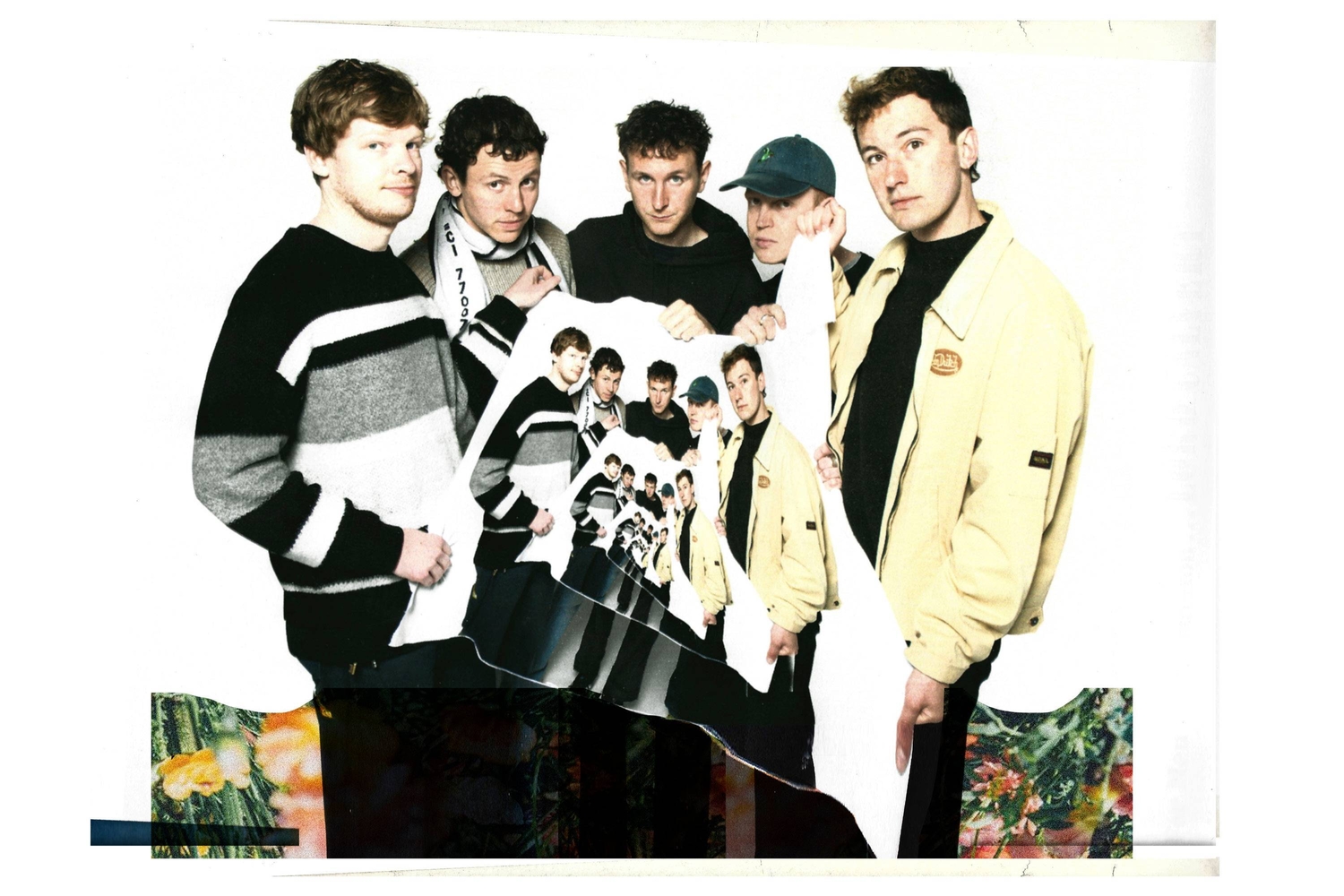
Squid are on the cover of DIY’s May 2023 issue!
Our new edition - which is out now - also features Peace, Temps, Miya Folick, Rina Sawayama and more.
25th May 2023, 4:00pm
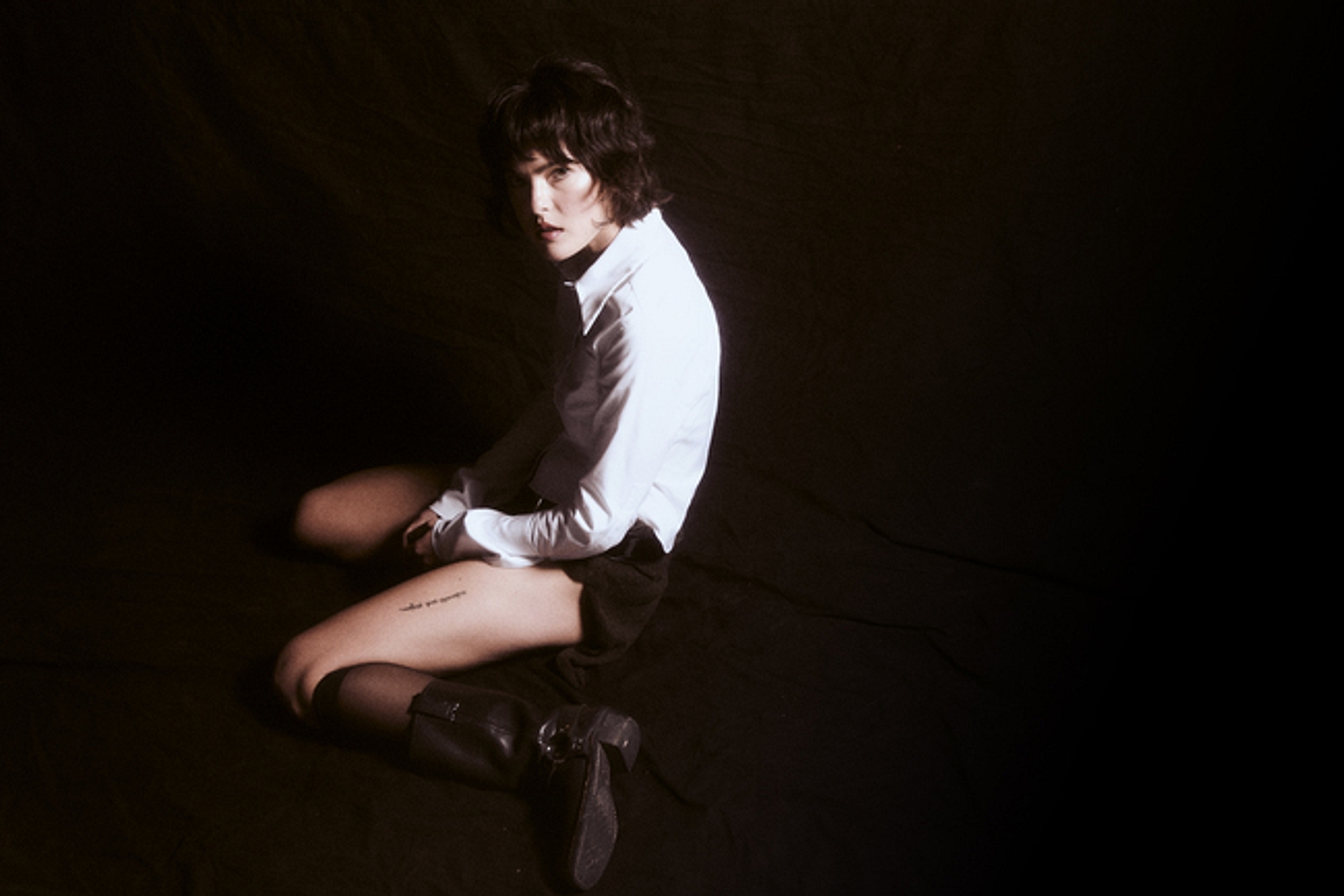
Miya Folick - Roach
4 Stars
Laced with a little intoxication.
24th May 2023, 7:58am

Miya Folick shares new song ‘So Clear’
Her second album ‘Roach is due out in May.
14th April 2023, 12:00am

Miya Folick announces new album ‘Roach’
She’s also sharing new single ‘Get Out Of My House’.
23rd January 2023, 12:00am
With Bob Vylan, St Vincent, girl in red, Lizzy McAlpine and more.
